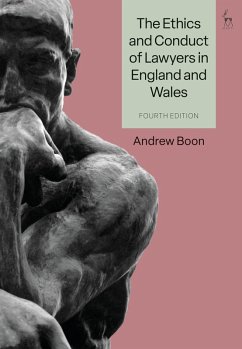The fourth edition of this respected textbook examines the regulation and conduct of lawyers in England and Wales and addresses new developments in the field, including those in international practice, sexual misconduct, and the environment.
Focusing on the practice of, and interrelationship between, solicitors and barristers, the book provides background to current arrangements while exploring contemporary rules of conduct, systems of regulation, and controversies.
The four main parts cover client duties, wider obligations, key contexts, and regulation. Parts one to three provide an academic introduction to the subject of lawyers' ethics. They are suitable as a core text for a semester course at undergraduate level, providing grounding for vocational training, such as the Solicitors' Qualifying Examination. Comparisons are made with conduct rules applying in other leading common law jurisdictions where relevant. These parts also explore links between the subject of ethics and the development of lawyers' practical skills. Part four applies the general principles to three elements of regulation: practice, admission, and discipline.
The approach throughout is socio-legal. While the essential law is described, relevant social science research informs consideration of issues and debates.
Focusing on the practice of, and interrelationship between, solicitors and barristers, the book provides background to current arrangements while exploring contemporary rules of conduct, systems of regulation, and controversies.
The four main parts cover client duties, wider obligations, key contexts, and regulation. Parts one to three provide an academic introduction to the subject of lawyers' ethics. They are suitable as a core text for a semester course at undergraduate level, providing grounding for vocational training, such as the Solicitors' Qualifying Examination. Comparisons are made with conduct rules applying in other leading common law jurisdictions where relevant. These parts also explore links between the subject of ethics and the development of lawyers' practical skills. Part four applies the general principles to three elements of regulation: practice, admission, and discipline.
The approach throughout is socio-legal. While the essential law is described, relevant social science research informs consideration of issues and debates.


